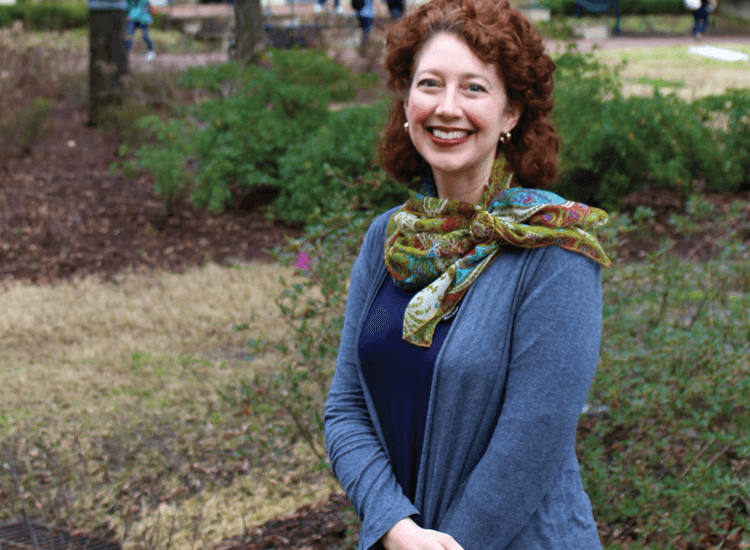
Stanford University’s Tomorrow’s Professor, an online faculty development resource, recently featured an excerpt from a book chapter by the Graduate School’s Assistant Teaching Professor of Writing, Lisa Russell-Pinson. Russell-Pinson teaches graduate-level academic writing courses and develops workshops and initiatives to help doctoral candidates succeed in dissertation writing.
The chapter, entitled “From Avoidance to Action: Helping Dissertation Writers Manage Procrastination,” addresses the causes, effects, and potential solutions to procrastination in the dissertation writing process; it appears in the book Learning from the Lived Experiences of Graduate Student Writers, published by Utah State University Press in 2020, and is co-authored with Haadi Jafarian, a UNC Charlotte graduate who is currently an assistant professor of computer science at the University of Colorado at Denver.
While procrastination often is attributed to laziness, the authors explain that it is more complex and “typically stems from cognitive, social-cultural and/or emotional roots” during the dissertation process. They then present common challenges that dissertation writers experience with procrastination and conclude by suggesting ways that those working with advanced doctoral students can support writers hindered by procrastination.
Russell-Pinson’s work on procrastination is her second publication on affective factors in the dissertation process. The first, titled “Anguish and Anxiety, Stress and Strain: Providing Emotional Support in the Dissertation Process,” was published in the Journal of Second Language Writing and co-authored with Lynne Harris, clinical psychologist at UNC Charlotte’s Center for Counseling and Psychological Services (CAPS). That paper examines the effects stress has on dissertation writers.
“I faced my own struggles when writing my dissertation,” Russell-Pinson said. “Through my own challenges and later with working with dissertation writers facing theirs, I became interested in learning about factors that could impede writing productivity.”
Russell-Pinson said she believes there is still much to learn “about affective factors in the writing process and their impact on academic writers – especially doctoral students – as well as appropriate ways to work with those struggling with the writing process.” She is currently working on a third publication that focuses on maladaptive perfectionism in the scholarly publication process.
With Harris, Russell-Pinson has developed different types of writing support for students through the Center for Graduate Life. These initiatives include Dissertation Writing Days, Dissertation Support Groups, and the for-credit course GRAD 8610: Making Dissertations Happen, which is co-taught by Russell-Pinson and Harris.
“In addition to increasing awareness of how writing and well-being are intertwined for graduate students and other academic writers,” Russell-Pinson said of her motivation, “I would like to continue developing interventions that support writers in reaching their potential.”
